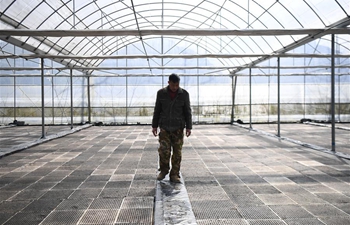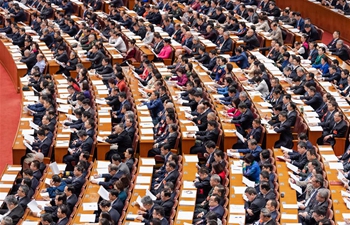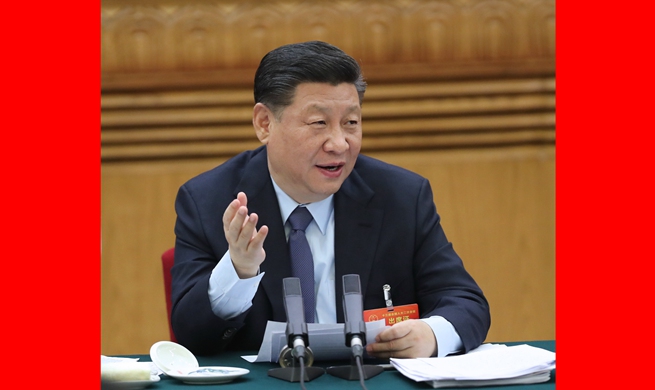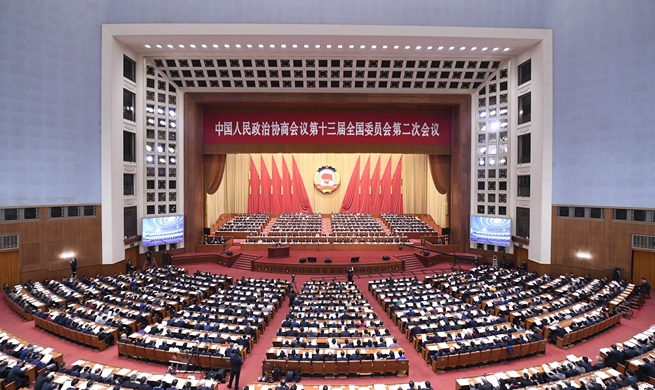LONDON, March 10 (Xinhua) -- British consumers are opting to shop in cheaper supermarkets and for cheaper products thanks to continuing Brexit uncertainties, said the head of a consumer research.
"We certainly see some evidence that there is a drift to the cheaper end of the supermarket spectrum at the moment," Fraser McKevitt, author of a recent report and head of Retail and Consumer Insight at Kantar, a consumer research organization, told Xinhua in an exclusive interview.
CHANGE OF CONSUMER ATTITUDE
The report, released on Tuesday by the organization, showed year-on-year supermarket sales growth of 1.9 percent during the 12 weeks to Feb. 24, 2019 and a change of consumer attitude.
"We're not in recession in the UK, but the economy is certainly slow and consumer confidence is not particularly high. Retailers, they will be wanting to offer, not only make sure that the availability is right, but also make sure that they have the right range there. They will want to offer and promote the products at the prices that the consumer wants to buy," McKevitt said.
In the report, German supermarkets Aldi and Lidl appeared to outperform the four major UK supermarkets through growth. McKevitt believes this is down to their constant availability, and cheaper pricing.
According to Kantar research, 80 percent of British shoppers are worried about the price of supermarket food and drink in the event of a no-deal Brexit.
"There is a potential indirect link to Brexit," McKevitt told Xinhua.
"I think the strongest thing to look back to here is the post-financial crisis in 2008. So the 2009 UK recession was quite deep, and what we saw that time was quite a drift towards people buying cheaper products and quite a drift towards people shopping in cheaper supermarkets. Now I'm not saying that Brexit would bring about a recession, that is one possibility. But we certainly see a slowdown at the moment," he said.
"There is a slight evidence in how people are behaving in that they are doing those 'pre-recession' behaviors. Looking for the cheap, and shopping at cheaper places too," he further explained.
These pre-recession behaviors include less out of home eating and drinking, less purchasing of health food categories, more snacking and an increase in packed lunches. These elements are all indicators that shoppers are nervous of the current political uncertainty.
RETAILERS GIRD FOR WORST
Another, perhaps more serious, indicator of shopper nerves is stockpiling food. According to the Kantar report, one in 10 shoppers said that they had started stockpiling groceries, and a further 26 percent reported that they are considering doing so. Although this has not been borne out in sales just yet.
"It's dependent upon the politics here. It's fairly clear to many people working in the industry that the government doesn't know what is going to happen, parliament doesn't know what is going to happen," McKevitt said.
Kantar's research shows that retailers are already taking extraordinary measures to prepare for a no-deal Brexit. Many have begun to stockpile non-perishable goods, testing longer-lasting varieties of fruit and vegetables, and lowering their quality standards. The research finds that some major retailers have even hired their own border inspectors to fast-track their imports - and are developing new security measures to protect supply chains.
But with just over two weeks to go before Britain's scheduled exit from the European Union, many of the major retailers are still concerned of the impact a badly dealt Brexit could have on business.
"It's hard at this point to see any positives coming out of Brexit, because it is disruptive to business and it is many unknowns. Businesses do not like unknowns because they can't plan for them," McKevitt said.













